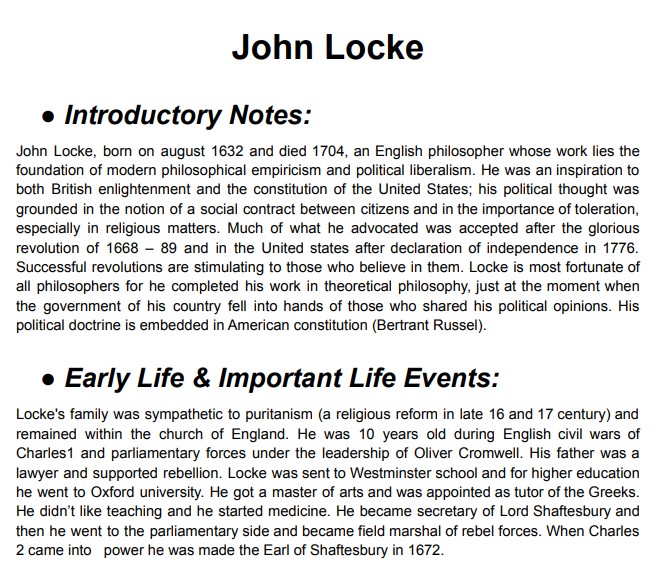The Influential Ideas of John Locke – Political Science Notes (Grade A)
Summary:
John Locke, an influential English philosopher of the 17th century, played a crucial role in shaping modern philosophical empiricism and political liberalism. His ideas on social contracts, tolerance, and limited government have had a profound impact on the British Enlightenment and the United States Constitution. Locke believed in separating state and religion, arguing that the state should focus on governance without religious interference. His work, including “Two Treatises of Government,” rejected absolute monarchy and emphasized natural rights and a constitutional government to protect individual liberties. Locke’s understanding of human nature emphasized the importance of education and experience in shaping moral beliefs, rejecting the notion of innate ideas. He advocated for religious tolerance, considering it a private matter, and stressed the ultimate power of the people, with governments limited by their consent and the protection of life, freedom, and property. Overall, Locke’s ideas continue to resonate, promoting individual rights, limited government, and the fundamental goodness of human nature.
Excerpt:
The Influential Ideas of John Locke – Political Science Notes
John Locke
● Introductory Notes:
John Locke, born on August 1632 and died 1704, is an English philosopher whose work lies the foundation of modern philosophical empiricism and political liberalism. He inspired both the British Enlightenment and the Constitution of the United States; his political thought was grounded in the notion of a social contract between citizens and the importance of tolerance, especially in religious matters. Much of what he advocated was accepted after the glorious revolution of 1668 – 89 and in the United States after the Declaration of Independence in 1776. Successful revolutions are stimulating to those who believe in them. Locke is most fortunate of all philosophers, for he completed his work in theoretical philosophy, just at the moment when the government of his country fell into the hands of those who shared his political opinions. His political doctrine is embedded in the American constitution (Bertrand Russel).


Reviews